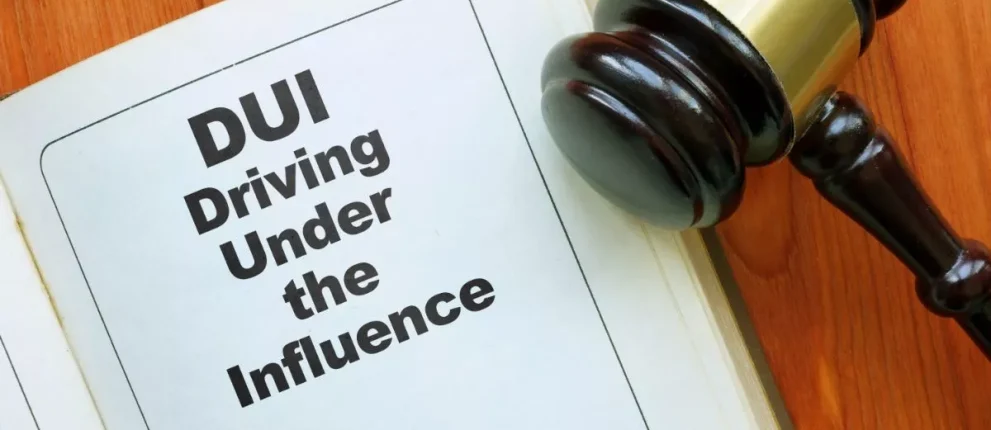Even if you thought you were drinking responsibly, having the misfortune of being pulled over at the wrong time can land you with DWI charges. DWIs come with the potential of serious legal consequences. There are potential steep fines, loss of driving privileges, and even the possibility of jail time if you are convicted. Fighting those charges requires knowledge of North Carolina DWI laws and penalties.
DWI Basics
Driving while intoxicated is illegal in North Carolina, and the laws are harsh for offenders. Law enforcement uses a standard known as BAC (blood alcohol content) to measure whether a driver is intoxicated. There are a number of reasons that you may be pulled over, which could include:
- Swerving
- Speeding
- Busted tail light
- Lack of vehicle registration
Even if you are pulled over for non-alcohol-related reasons, the officer may issue a test to determine if your BAC is above the legal limit. In North Carolina, that limit is .08% for anyone 21 or over. Anyone under 21 will be cited for underage drinking and DUI if any amount of alcohol is present. Commercial drivers have a higher standard at .04% BAC. Tests are typically administered via a Breathalyzer.
Possible Penalties for a DWI in North Carolina
If you are charged with a DWI, you will be arrested and booked in jail. How soon you get out depends on the terms of your bail and if you are able to post bail quickly. North Carolina requires stiffer penalties for multiple offenders.
Offenders with a level five conviction face a maximum fine of $200 and a license suspension of 60 days to one year. When it comes to jail time, you may get off with only the initial jail booking if you are a first-time offender. Aggravating circumstances, such as bodily harm to another person, could lead to months of minimum jail sentencing or longer.
Offenders will also have to install an interlock ignition device in their car. For second-time offenders, their license could be suspended for up to four years. Jail sentences could range between 72 hours and six months for level three offenses, and the fine could be up to $1,000.
A third offense in seven years could lead to a permanent driver’s license suspension of one year and the placement of an interlock device for several years. If one aggravating factor was present, offenders could face jail time of seven days to one year and a maximum fine of $2,000.
How Can a Criminal Defense Lawyer Help Me?
Your criminal defense lawyer is there to protect your rights and fight for your interests. Many of our clients were able to resolve their cases favorably by seeking legal counsel, but that does not always mean that the charges were dropped.
Sometimes, accepting a lower offense can be the optimal option for moving on with your life under terms that could include small fines and probation. During your consultation, our lawyer can carefully listen to the details of your case before determining which strategy may work.
If the facts of your case show that you did not commit the crime you are charged with, our lawyer can work to have your charges dismissed. We are more than prepared to take a case to trial if that is in the interest of our clients.
Many cases are resolved through plea bargaining. This is the process where prosecutors offer lower charges to the defendant. The courts in North Carolina have to keep their dockets moving, so it is often in the interest of prosecutors to consider expediency when determining how to handle your case.
At all times, our clients have the full and final say on what direction they would like to choose. Our job is to provide counsel in the form of professional, informed advice. We understand that our clients have personal lives, and some cases may require more time to resolve than others. We will always fight for the ideal outcome, given the circumstances of your DWI charge.
FAQs
Q: What Are the Penalties for DWI in North Carolina?
A: The penalties for DWI in North Carolina could include fines, a revoked driver’s license, jail time, and the installation of an interlock ignition device. The severity of your penalties will be determined by the number of prior DWI charges you have and other factors tied to your most recent arrest. If your DWI harmed someone or damaged property, the courts may seek a higher penalty.
Q: What Is the Difference Between DUI and DWI in NC?
A: There is no difference between DUI and DWI in NC. North Carolina does not differentiate between DUI and DWI. Other states have lower penalties for DUI, which stands for driving under the influence. In those other states, DUI could be for any substance (not just alcohol) that alters the driving ability of the driver. In North Carolina, whether you call it DUI or DWI, the punishments include fines, jail time, loss of driving privileges, and interlock ignition device installation.
Q: What Is the Sentence for a Level 1 DWI in NC?
A: Your sentence will depend on what kind of plea bargain your lawyer can work out with the district attorney’s office. A Level 1 DWI involves aggravating factors like bodily injury to others, so the judgment may be harsh. You could face $4,000 in fines, permanent loss of driving privileges, and up to two years in jail.
Q: What Is the Process of a DWI in NC?
A: The process of a DWI in North Carolina involves the offense, arrest, guilty or not guilty plea, court hearings, plea bargain negotiations, and resolution. The resolution could happen when you agree to accept a lower charge, accept the current charge, or seek a trial. The process can take a few months to a few years to resolve.
Schedule Your DWI Consultation With The Schweppe Law Firm, P.A., Today
Facing DWI charges does not mean that you are guilty. The state must prove your guilt, and first-time offenders can be granted leniency in the form of a lower charge offered through plea bargaining. Due to the serious nature of a DWI charge, you should work with an experienced lawyer in Cleveland County who can fight for your rights while seeking a fair settlement for your case. Take the first step by calling our office to schedule your consultation today.








